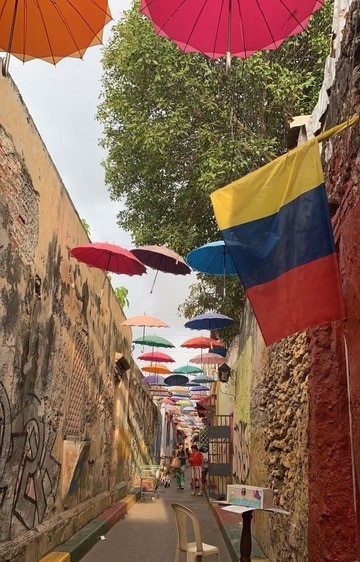By Danielle Castano
Special for CSMS Magazine
South America is one of the most complex places I have ever visited. Having travelled to both Colombia and Brazil, I’ve witnessed the hardships that both nations endure. Despite only staying in Brazil for a month, I’ve learned a lot about some social issues effecting the country from students and teachers at the school I was teaching at. My experience in Colombia was different. My family being from Colombia and traveling there every other year has given me personal insights on some issues that affect the country. I have seen some improvement over the past several years in Colombia. However, these changes occur slowly.
Unfortunately, both countries range in the middle of the spectrum of the Social Progress Index. Both score low in personal safety, person freedom and choice, access to advanced education and inclusiveness. However, both countries score fairly well in basic medical care, shelter and access to basic knowledge. It is safe to say that citizens of both countries live similarly in terms of social justice.
Corruption is a significant issue for both nations which has stalled both countries from making headway in social progress. Brazil has a history of government corruptions. Politicians are routinely involved in corruption scandals. These events have led to total mistrust. Ordinary people do not put their faith on government social reforms.
Colombia has made some improvement in tackling corruption over the past couple of years. Recent peace negotiations with FARC (Colombia’s Revolutionary Armed Forces) has given a lot of Colombians hope for a better future. The insurgency group operated for several decades and bred insecurity in several areas in Colombia.
Despite these similarities between Brazil and Colombia, Brazil does fairly better in socio-economic equity. The socio-economic equity gap is among the worst in Latin America, but there are some countries that are leading by example. Chile and Brazil are leading by example in this category.
While both countries can provide basic medical care, shelter and basic education for its citizens, they still have work to do in the area of job opportunities for everyone. Despite these hardships that the citizens of these countries face, they are some of the most welcoming and kindest people I have ever met. I look forward to visiting more countries in Latin America and seeing their progress in social justice issues.
Note: Daniella Castano is a University of Florida graduate. She holds a degree in political science.
To learn more about social justice in Latin America, you can always visit these sites below.
Alexander, Lynsey. “Socio-Economic Equity in Brazil and Chile.” The Borgen Project, Lynsey Alexander, 30 Mar. 2020, borgenproject.org/socio-economic-equity-in-brazil-and-chile/
“Overview.” World Bank, www.worldbank.org/en/country/brazil/overview.
2019 Social Progress Index. www.socialprogress.org/.
“Colombia: Overview of corruption and anti-corruption.” Transparency International, https://www.transparency.org/files/content/corruptionqas/373_Colombia_Overview_of_corruption_and_anti-corruption.pdf


